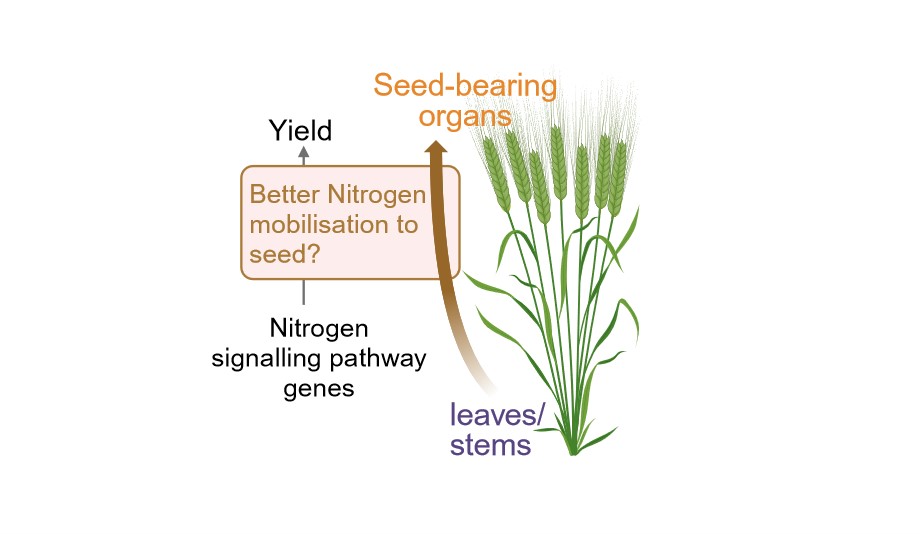Unlocking yield gains with a new pathway targeting plant nitrogen usage
Nitrogen fertiliser is indispensable for agricultural productivity, but crops are inefficient at utilising fertiliser for grain production.
Research themes
Project status
Content navigation
About

Nitrogen fertiliser is indispensable for agricultural productivity, but crops are inefficient at utilising fertiliser for grain production. It is imperative to identify new avenues to sustainably increase yield with less fertiliser input as unused fertiliser enters the environment and causes immense ecological damage.
Work led by Dr Michael Taleski implicated a new signalling pathway in seed yield and whole-of-plant nitrogen homeostasis. Building on this work, this project aims to provide fundamental knowledge on the regulation and function of genes underpinning seed yield and the draw of nitrogen from canopy to seed, across different organs and cell types. This knowledge will inform how gene activity may be augmented using gene editing technology to boost nitrogen-efficient seed yield.
Working across Arabidopsis and barley, the project offers opportunities to develop capacities in molecular biology techniques including gene editing, as well as in “omics” techniques including transcriptomics, metabolomics, and (phospho)proteomics.
Figure created with BioRender.com



